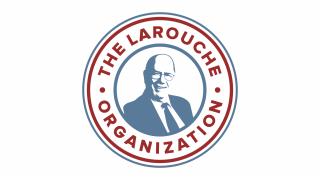March 22—Russian President Vladimir Putin and Chinese President Xi Jinping wrapped up two-days of intense summit meetings in Moscow on Wednesday, March 22, and announced a fruitful strengthening of their bilateral relationship on all fronts, along with a call for the international community to recognize that, “to settle the Ukraine crisis, the legitimate security concerns of all countries must be respected,” as their Joint Statement on strategic issues asserted. The two leaders stated that it was necessary to “update and improve the international security architecture,” and they specifically called for urgent consideration of China’s 12-point peace proposal for Ukraine.
They soberly warned of the risk of nuclear conflict, reiterated their commitment “that there can be no winners in a nuclear war and it must never be unleashed,” and called on the other Five Nuclear-Weapon States signatories to that public affirmation—the United States, France and the United Kingdom—to “follow its key postulates in practice, including effectively reducing the risk of a nuclear war and any armed conflict between states possessing nuclear weapons.”
To say that China’s 12-point peace plan for Ukraine fell on deaf ears in Washington, would be far too positive a reading. Before it was even made public, Secretary of State Blinken had dismissed the proposal out of hand. In comments about Xi’s visit to Russia, Blinken said the Chinese leader was just providing political cover to a discredited and isolated Putin, and that the only thing Xi should have told Putin was to withdraw from Ukraine. National Security Council spokesman John Kirby said that Xi just “keeps parroting the Russian propaganda that this is somehow a war of the West on Russia.”
The U.S. and U.K. put teeth in their war-mongering response by announcing that the British would be sending Ukraine “ammunition including armor piercing rounds which contain depleted uranium,” while four members of the U.S. Congress began agitating for the Biden Administration to send cluster munitions to the Kiev regime.
This desperate urgency to continue the war from the NATO side can only be explained by the fact that there is a lit fuse on the entire trans-Atlantic financial system. As Lyndon LaRouche frequently explained, it is the breakdown collapse of the Western financial system which is the driving force towards war.
In Europe, the bailout of Switzerland’s Credit Suisse over the weekend has failed to contain the contagion in the banking system, and CS’s derivatives holdings are inextricably intertwined with “counterparties” among the major banks on the U.S. side. In the United States, First Republic Bank is following in the steps of Silicon Valley Bank and is teetering on the edge of bankruptcy, while the Treasury and FDIC are again poised to bail out the entire bankrupt banking system—at taxpayers’ expense, just like 2008, only far worse.
As Helga Zepp-LaRouche stated in her weekly webcast, and in follow-up discussions with associates, the destruction of the physical economies of entire developing sector nations; the driving of countless millions of Americans into penury, drugs and despair; the endless wars of aggression which, like the Iraq War, have been based on lies and deceit, simply have to end now. “The buck stops here; enough!” Zepp-LaRouche insisted. “We either act, or we will all end up like Haiti, like Afghanistan, like Syria.”
The nations of the Global South, along with angry citizens of the United States and Europe, have to insist that China’s peace plan for Ukraine must promptly go on the world’s agenda, and that the response to the financial meltdown must be the convening of an emergency international conference to implement Lyndon LaRouche’s Four Laws, and not another deadly bailout.






